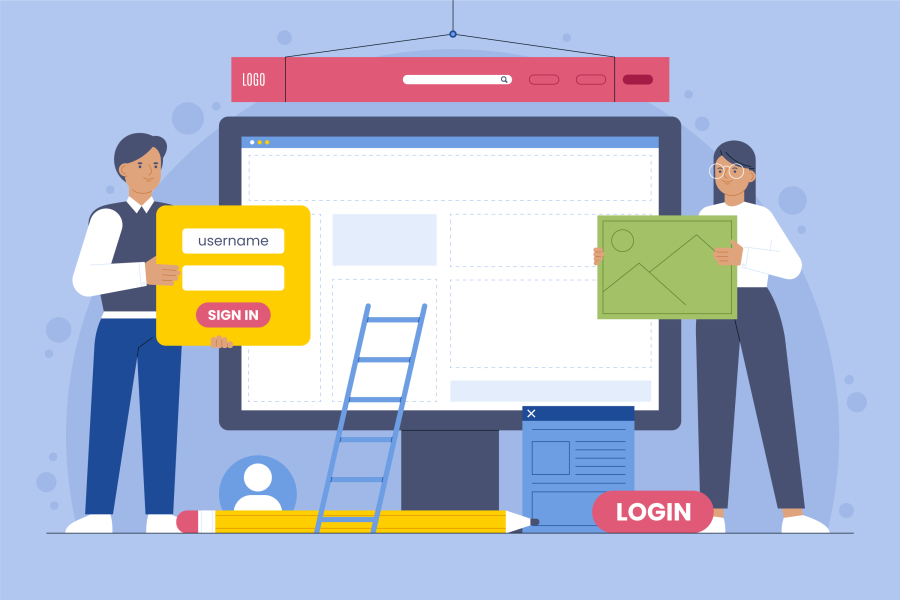How to Stay Focused Working from Home
Working from home offers flexibility and freedom, but it also presents challenges for maintaining focus and productivity. Distractions, lack of structure, and blurred boundaries between personal and professional life can affect performance.
This guide provides strategies to stay focused, manage time efficiently, and create a productive home workspace. Implementing these practices allows remote freelancers and home-based professionals to optimize their work, meet deadlines, and maintain a healthy work-life balance.
Long Description
1. Create a Dedicated Workspace
A well-organized workspace enhances focus:
Separate Work Area: Designate a specific area in your home for work to minimize distractions.
Ergonomic Setup: Ensure comfortable seating, proper desk height, and good lighting.
Keep it Organized: A clutter-free space reduces stress and improves efficiency.
Minimize Noise: Use noise-canceling headphones or white noise to maintain concentration.
A dedicated workspace signals your mind that it’s time to focus on work.
2. Establish a Daily Routine
Routines create structure and help sustain focus:
Set Work Hours: Define start and end times to create consistency.
Morning Rituals: Begin the day with a routine that prepares you mentally for work.
Breaks and Rest: Schedule regular short breaks to maintain energy levels.
End-of-Day Routine: Signal the end of work to separate professional and personal life.
A consistent routine improves discipline and enhances productivity.
3. Prioritize Tasks Effectively
Focusing requires knowing what tasks are most important:
Daily Task List: Outline top priorities at the start of each day.
Use Prioritization Techniques: Eisenhower Matrix or ABC method to classify tasks by urgency and importance.
Avoid Multitasking: Focus on one task at a time to ensure quality and efficiency.
Set Realistic Goals: Break large projects into manageable steps.
Prioritization ensures attention is given to high-impact activities first.
4. Minimize Digital Distractions
Digital interruptions are a common challenge for remote workers:
Limit Social Media: Schedule specific times for checking social platforms.
Turn Off Notifications: Silence non-essential alerts during work hours.
Use Focus Tools: Apps like Freedom, Focus@Will, or StayFocusd help block distractions.
Designate Communication Windows: Respond to emails and messages at set intervals.
Reducing digital distractions allows longer periods of deep, productive focus.
5. Implement Time Management Techniques
Structured work methods improve focus and efficiency:
Pomodoro Technique: Work in 25–50 minute intervals followed by short breaks.
Time Blocking: Allocate specific time slots for particular tasks.
Batching Similar Tasks: Complete similar activities together to reduce context switching.
Set Deadlines: Internal deadlines create urgency and motivation.
Time management strategies help maintain sustained concentration on important projects.
6. Use Productivity Tools
Leveraging tools can enhance focus and organization:
Task Management Apps: Trello, Asana, or Notion help track projects and tasks.
Time Tracking Tools: Toggl or Clockify monitor productivity and identify inefficiencies.
Automation Tools: Automate repetitive tasks such as invoicing or scheduling.
Note-Taking Tools: Keep ideas, to-dos, and project notes organized digitally.
Productivity tools streamline workflow and reduce mental clutter.
7. Take Care of Physical and Mental Health
Staying focused is linked to overall health:
Exercise Regularly: Physical activity improves energy and cognitive function.
Maintain Proper Nutrition: Healthy meals support sustained mental performance.
Get Adequate Sleep: Rested minds maintain better concentration.
Practice Mindfulness: Meditation or breathing exercises help reduce stress and increase focus.
Prioritizing health ensures mental clarity and sustained attention during work hours.
8. Set Boundaries with Others
Maintaining focus requires clear boundaries:
Communicate Work Hours: Let family or housemates know your schedule.
Minimize Interruptions: Use visual cues or signals when deep focus is needed.
Respect Personal Time: Avoid overextending work into personal hours.
Create Agreements for Shared Spaces: Coordinate with household members for quiet periods.
Boundaries reduce distractions and protect uninterrupted work time.
9. Maintain Motivation and Accountability
Staying motivated helps sustain focus at home:
Track Progress: Keep a record of completed tasks to see accomplishments.
Set Milestones: Break long-term projects into smaller, achievable goals.
Reward Yourself: Celebrate progress to stay motivated.
Accountability Partner: Share goals with someone who can check in on progress.
Motivation and accountability keep energy and focus levels high.
10. Continuously Improve Focus Techniques
Regular assessment helps refine focus strategies:
Analyze Productivity Patterns: Identify when you are most alert and schedule demanding tasks accordingly.
Experiment with Methods: Try different techniques to see what works best.
Reflect on Distractions: Note what interrupts focus and adjust strategies.
Adjust Environment: Modify workspace, lighting, or tools to optimize concentration.
Continuous improvement ensures long-term productivity and efficient work from home.
Conclusion
Staying focused while working from home requires structured routines, effective time management, task prioritization, distraction control, and self-care. By implementing dedicated workspaces, leveraging productivity tools, setting boundaries, and maintaining health and motivation, remote freelancers can achieve high efficiency and consistent results.
Focused work habits improve performance, ensure timely project delivery, and support career growth. Freelancers who master focus while working from home can balance flexibility with productivity, leading to a sustainable and successful remote career.


 by Emily
by Emily




